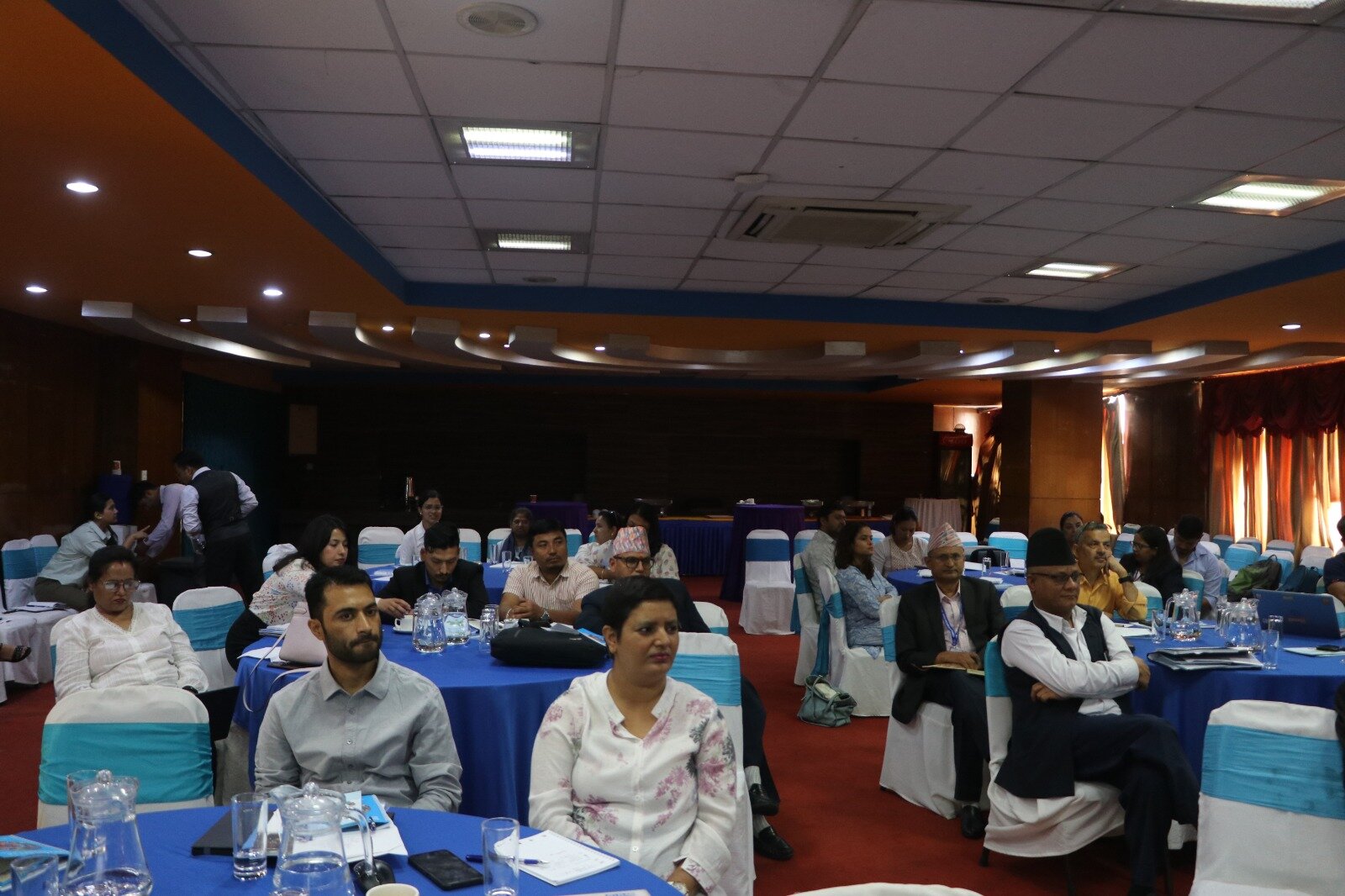
Posted On:
“Commitment to invest in Child-Friendly Local Governance (CFLG)”
Kathmandu, – An interaction program focused on Child-Friendly Local Governance (CFLG) concluded, underscoring the commitment of various stakeholders to advance child rights and child-friendly initiatives in Nepal. The event was chaired by Suman Dahal, Joint Secretary of the Ministry of Federal Affairs and General Administration (MOFAGA), with Mukunda Niraula, Secretary of MOFAGA, serving as the Chief Guest.
The program saw participation from subject ministries, the Director of the National Planning Commission, representatives from the Ministry of Education Science and Technology, UNICEF, ILO, numerous Civil Society Organizations (CSOs), and international development partners such as World Vision International Nepal, Plan International, TDH Switzerland, KDH, GNI, Good Shepherd International, SPCSN, and JCYCN, among others.
In his welcome speech, Resham Kandel, Under Secretary of MOFAGA, provided an overview of CFLG, highlighting its inception in 2011 and its progress and challenges before and after the implementation of the federal structure. He emphasized the role of local governments in revitalizing the campaign and the significant obstacles in gathering precise data on CFLG interventions.
The program included detailed presentations covering several key areas. Presentations on laws, policies, and procedures outlined the CFLG strategy 2068, CFLG procedure 2068, and CFLG declaration procedure 2079. Discussions on implementation effects showcased contributions to infrastructure development, child rights, effective child club functions, increased awareness, budget allocations for the child sector, and human resource development. Major challenges highlighted included ensuring collaboration, technical support, sustaining popularity, ownership, and adoption by local governments in periodic planning.
Chief Guest Mukunda Niraula acknowledged the ongoing efforts in child rights and highlighted persistent gender discrimination issues that impede progress. He stressed the need for practical policy development and implementation to ensure equitable investment in girls’ education. Niraula reaffirmed the government’s commitment to supporting development partners and stakeholders in amplifying the CFLG campaign.
UNICEF/ Empowered Women Prosperous Nepal (EWPN) representative Mr. Thakur Dhakal called for an integrated approach to the CFLG campaign, pledging support for the government’s efforts. World Vision International emphasized the necessity of strategic endorsement by the cabinet and coordination across different government tiers. Save the Children announced plans to adopt an integrated programming approach over the next five years, aiming to meet CFLG indicators in at least 40 local governments across Madhes and Karnali provinces.
The program featured discussions on various contributions from development partners. ILO highlighted the need for a robust data management system to generate evidence on child labor and CFLG. Plan International focused on early childhood development (ECD) and education-related indicators. The Ministry of Education stressed the importance of setting intersectionality-focused indicators. Representatives from the Ministry of Women, Children, and Senior Citizens shared insights on their ongoing support from development partners for children’s well-being and upcoming initiatives like the Child Marriage National Strategy 2081 and the drafting of child funds.
The event concluded with commitments from various agencies and development partners to invest in and promote CFLG. Presentations from Tilottam Poudel, President of JCYCN and Social Protection Civil Society Network (SPCSN), and Ashok Khanal, Coordinator of the Child-Friendly Local Governance National Forum, emphasized civil society’s role in advancing child-friendly local governance. World Vision International representative Mr. Shyam Adhikari emphasized the necessity of strategic endorsement by the cabinet and coordination across different government tiers. The program’s success marks a significant step towards enhancing cooperation between the Nepal government and development partners, ensuring sustained progress in child-friendly initiatives and the promotion of children’s rights across the country.
In this program, 50 attendees (from CSOs, UN agencies, line ministries, and government agencies) have discussed intensively and appealed to the Nepal government to increase the portion of the investment for children and CFLG. They highlighted the need to bring a new CFLG strategy, allocate a child budget code for children’s budget in the federal level budget, and emphasized that SPCSN and the NCFLG forum are providing technical support to adopt the CFLG framework in 32 local governments of Madhes, Karnali, and Far Western Province of Nepal under the portfolio of Empowered Women Prosperous program Nepal funded by UNICEF Nepal.